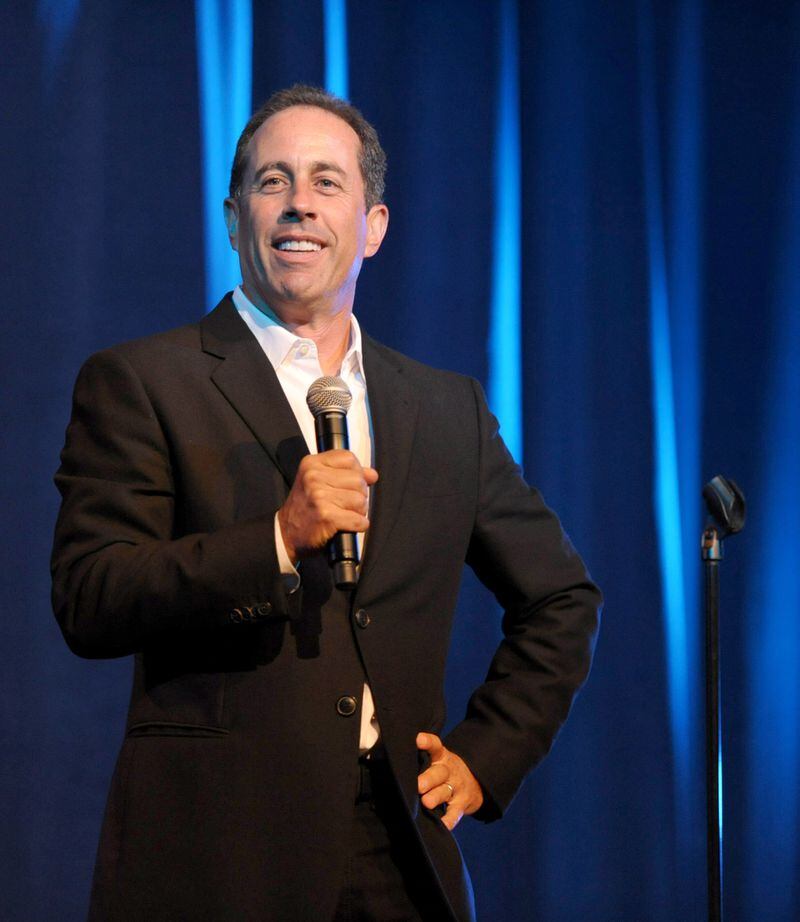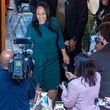In this essay, frequent AJC Get Schooled contributor and University of Georgia professor Peter Smagorinsky writes about whether college campuses have become too politically correct, a term bandied about in the news over the last few weeks, courtesy of Donald Trump. (Smagorinsky discusses Trump as well.)
By Peter Smagorinsky
“Recently, comedian Jerry Seinfeld spoke out against political correctness in our culture. Do you think political correctness is helping or hurting this country? And why?”
This question was posed during the recent Miss USA contest, with contestants given a minute to formulate and articulate their response. Miss Rhode Island has been ridiculed for stumbling her way through her answer and for her mistaking the question's intent. She appeared to think the question referred to the quality of political leaders' decisions, that is, their correctness.
Credit: Maureen Downey
Credit: Maureen Downey
Most viewers instead invoked the generally understood meaning of political correctness as "showing an effort to make broad social and political changes to redress injustices caused by prejudice. It often involves changing or avoiding language that might offend anyone, especially with respect to gender, race, or ethnic background."
If asked that question with a one-minute window for reflection and response, I’d stumble, too. I’d start by asking the hostess to clarify the line between being respectful of other people’s dignity, sensibilities, and experiences, and being so timid about offending them that I contribute to the suppression of free speech. My minute would then be up and I’d have to leave.
Returning to this essay’s opening quote: Jerry Seinfeld is a comedian, and one of my favorites. According to the article linked above, he believes “the overly politically correct culture is incredibly damaging to comedians everywhere.” He also is quoted as saying, “I don’t play colleges, but I hear a lot of people tell me, ‘Don’t go near colleges. They’re so PC.'”
I teach in a College of Education, considered by many to be the epicenter of political correctness in our universe. Guilty as charged. But I have found in a lifetime of laughter that comedians’ humor often comes at some person’s or group’s expense, often by amplifying a stereotype or making light of pain.
Universities in contrast are founded on the quest for knowledge, and knowledge tends to upset the neat stereotypes on which humor is often founded and cultivate an understanding of other people’s experiences.
Comedian Daniel Tosh made headlines for saying during a performance, "Wouldn't it be funny if [a female heckler] got raped by, like, five guys right now? Like right now?" Other comics have joked about tsunami victims , disparaged the LGBTQ population, and made jokes at the expense of other groups. Typically, they have been defended by other comedians for their "edginess."
If politically correct indignation helps to keep people from making light of other people’s horrifying trauma, I’m all for it. I see little benefit in promoting societal meanness by standing silent while bullies beat down people whose lives are difficult to begin with.
I can see why a stand-up comic would find colleges can be inhospitable to those whose humor is predicated on the humiliation of whole groups of people who are targets because they are vulnerable. People who boast they are "politically incorrect" come from across the political spectrum, from Bill Maher to Donald Trump. Each claims to have exclusive access to The Truth and to have singular insight, courage, and straightforwardness to expose it to a weak-kneed society.
But such politically incorrect rhetoric is often factually incorrect. Donald Trump might actually believe Mexican immigrants, including the women and children, are rapists for the most part. No known statistic supports his contention, however, even as he continues to claim "All I'm doing is telling the truth" and it is politically incorrect to think otherwise.
I've read a number of old school textbooks in which the language used to describe non-whites was disparaging. In one, virtually all non-white people and their societies were characterized as "savage." In changing this language over time, did textbook companies capitulate to political correctness, or recognize they were relying on negative stereotypes for this depiction, in the process relying on surface features for general conclusions?
Donald Trump and I would undoubtedly disagree on how to answer this question. I suspect we'd draw on different evidence to inform our opinions as well. One thing I like about university and school life is we are engaged in the quest for better understanding. As the UGA motto states, we are dedicated to the mission to teach, to serve, and to inquire into the nature of things.
That doesn’t mean stopping at the stereotype door. Rather, we are charged with looking deeper than the surface to interrogate at a more complex level. Such inquiries tend to find the stereotypes on which both humor and deficit characterizations are founded are incomplete.
Trump might find, with further inquiry, that first-generation immigrants are no more likely to commit crimes than are any other people in the U.S. That knowledge would surely affect a fact-based social policy that is fair to immigrant families and contribute to better informed assumptions made in school about immigrant youth.
Unlike Miss Rhode Island, I think I understand the question posed to her on the Miss USA stage. Like her, I have trouble answering this question definitively within my space allotment. My brief effort here leads me to the conclusion that when in doubt, I should err on the side of respecting the dignity of people who are different from me. Doing so would involve crafting my language to embody my assumption of the inherent worth of others. I’ve got lots of words at my disposal, and rather enjoy finding new ones that better express my views.
If that makes me politically correct, then I’ll embrace the accusation. The Rev. Martin Luther King once observed, “The arc of the moral universe is long, but it bends towards justice.” In the long run, I hope our cumulative, persistent efforts to cultivate humane beliefs through respectful language helps to bend that arc in the direction he envisioned.
About the Author







